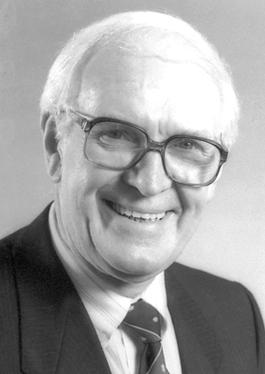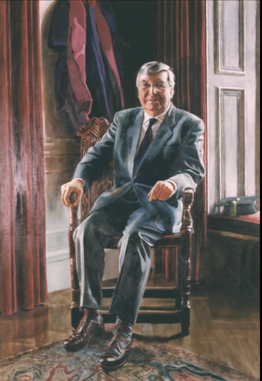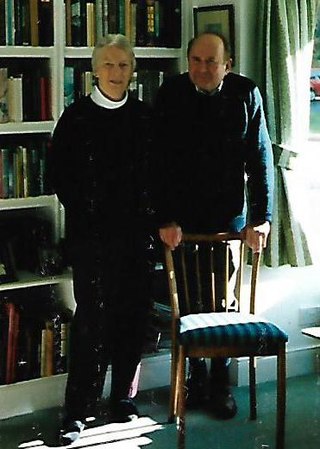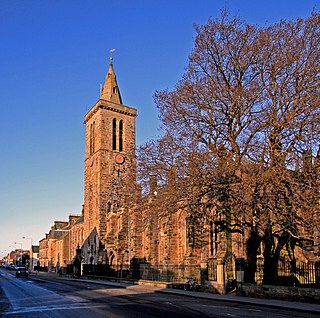
Sir James Whyte Black was a Scottish physician and pharmacologist. Together with Gertrude B. Elion and George H. Hitchings, he shared the Nobel Prize for Medicine in 1988 for pioneering strategies for rational drug-design, which, in his case, led to the development of propranolol and cimetidine. Black established a Veterinary Physiology department at the University of Glasgow, where he became interested in the effects of adrenaline on the human heart. He went to work for ICI Pharmaceuticals in 1958 and, while there, developed propranolol, a beta blocker used for the treatment of heart disease. Black was also responsible for the development of cimetidine, an H2 receptor antagonist, a drug used to treat stomach ulcers.

Sir Walter Norman Haworth FRS was a British chemist best known for his groundbreaking work on ascorbic acid while working at the University of Birmingham. He received the 1937 Nobel Prize in Chemistry "for his investigations on carbohydrates and vitamin C". The prize was shared with Swiss chemist Paul Karrer for his work on other vitamins.
Brian Andrew Lang is a Scottish social anthropologist who served as deputy chairman of the British Library and Principal of the University of St Andrews 2001–2008. He was Chair of the Royal Scottish National Orchestra 2008–2015. He is a trustee of National Museums Scotland since 2014.

Struther Arnott was a Scottish molecular biologist and chemist who specialised in cancer research. He was a principal and vice-chancellor of the University of St Andrews.
Sir William Kerr Fraser was a British civil servant, who served as Permanent Secretary at the Scottish Office, and as Principal and later Chancellor of the University of Glasgow.

Sir James Colquhoun Irvine KBE FRS FRSE FEIS was a British organic chemist and Principal and Vice-Chancellor of the University of St Andrews from 1921 until his death. As a research chemist, Irvine worked on the application of methylation techniques to carbohydrates, and isolated the first methylated sugars, trimethyl and tetramethyl glucose.

Madras College, often referred to as Madras, is a Scottish comprehensive secondary school located in St Andrews, Fife. It educates over 1,400 pupils aged between 11 and 18 and was founded in 1833 by the Rev. Dr Andrew Bell.
John Michael Tedder, 2nd Baron Tedder, FRSE FRSC, was the Purdie Professor of Chemistry at St. Andrews University, Scotland.
Sir John Harrison Burnett was a British botanist and mycologist, who served as the principal and vice chancellor of Edinburgh University from 1979 to 1987.
Finlay A. J. Macdonald is a retired minister of the Church of Scotland. He was Principal Clerk to the General Assembly of the Church of Scotland from 1996 until 2010. In addition to his rapid rise up the ranks of the Church of Scotland, Macdonald is known for fostering co-operation between the various boards and committees which administer the Church and for steering the Church smoothly through its annual business meetings.
Sir Thomas Malcolm Knox was a British philosopher who served as Principal of St Andrews University from 1953 to 1966 and vice-president of the Royal Society of Edinburgh from 1975 to 1978.
David Alexander Syme Fergusson is a Scottish theologian and Presbyterian minister. Since 2021, he has been Regius Professor of Divinity at the University of Cambridge.

Sir Graham Hills was a physical chemist, principal of the University of Strathclyde, and a governor of the BBC. He was born in Southend-on-Sea, Essex and educated at Westcliff High School for Boys and Birkbeck College, London. He was knighted in 1988 for his services to education.

Sir Ian David Diamond FLSW is a British statistician, academic, and administrator, who served as Principal and Vice-Chancellor of the University of Aberdeen until 2018. He became the UK's National Statistician in October 2019.
Christopher John Hawkesworth FRS FRSE is a British earth scientist, and former Deputy Principal and Vice-Principal for Research, at University of St Andrews.

Anthony Ledwith was a British chemist.

The history of universities in Scotland includes the development of all universities and university colleges in Scotland, between their foundation between the fifteenth century and the present day. Until the fifteenth century, those Scots who wished to attend university had to travel to England, or to the Continent. This situation was transformed by the founding of St John's College, St Andrews in 1418 by Henry Wardlaw, bishop of St. Andrews. St Salvator's College was added to St. Andrews in 1450. The other great bishoprics followed, with the University of Glasgow being founded in 1451 and King's College, Aberdeen in 1495. Initially, these institutions were designed for the training of clerics, but they would increasingly be used by laymen. International contacts helped integrate Scotland into a wider European scholarly world and would be one of the most important ways in which the new ideas of humanism were brought into Scottish intellectual life in the sixteenth century.
Archibald Main, was a Scottish ecclesiastical historian, Church of Scotland minister, military chaplain, and academic. From 1915 to 1922, he was Professor of Ecclesiastical History at the University of St Andrews. From 1922 to 1942, he was Regius Professor of Ecclesiastical History at the University of Glasgow. He served as Chaplain to the King from 1925 and as Moderator of the General Assembly of the Church of Scotland from 1939 to 1940.
Patrick Dunbar Ritchie FRSE FRSC FPRI LLD (1907–1981) was a 20th-century British chemist of Scots descent. Apart from being a noted chemist, he was an artist, fine art conservator, philatelist, ornithologist and mountaineer. His friends knew him as Pat Ritchie.

Sir Donald Macleod Douglas, was a Scottish academic surgeon. His schooling and medical undergraduate education were at St Andrews following which he embarked at an early stage on an academic career, winning a scholarship to pursue research at the Mayo Clinic, Minnesota.









